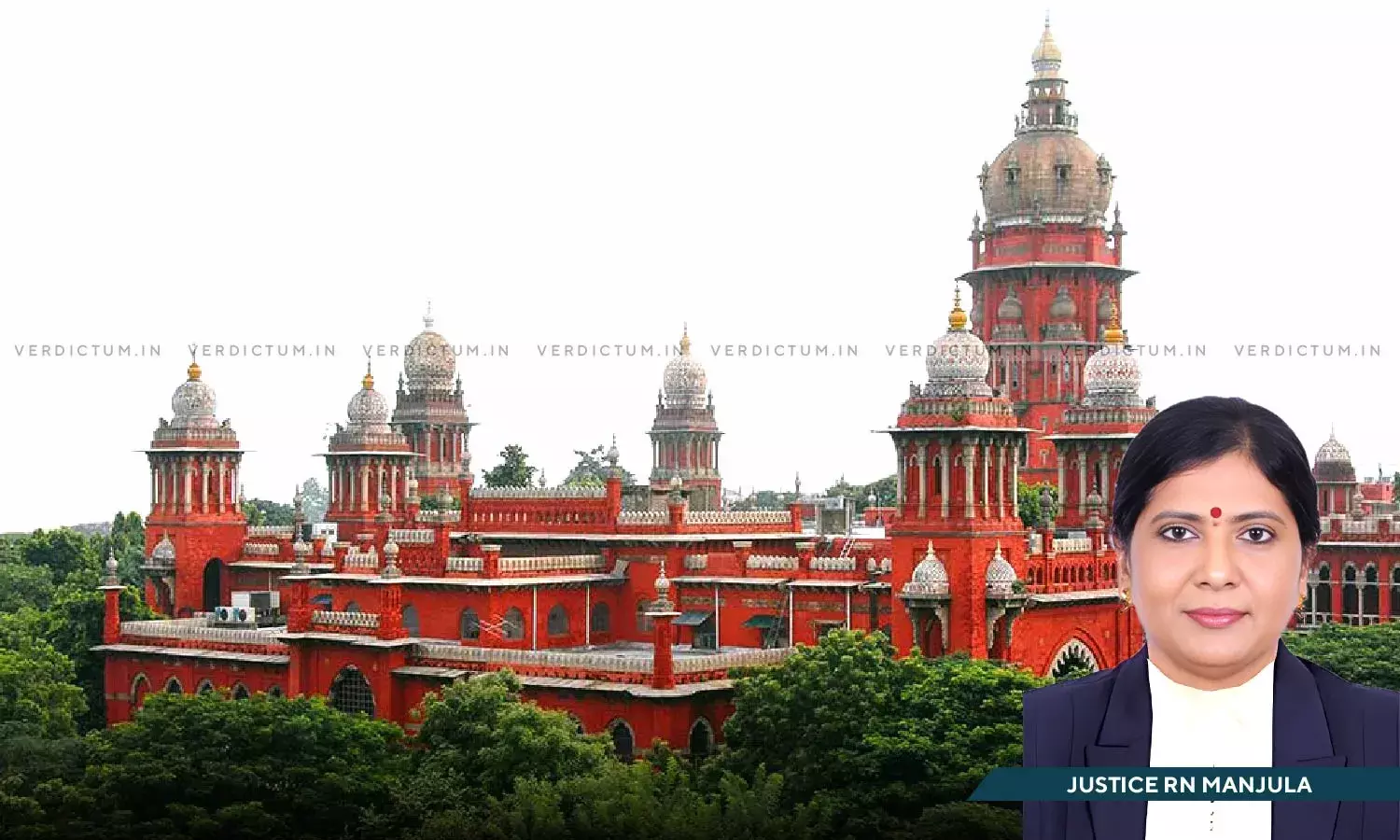Madras HC Directs Central Govt To Ensure Proper Existence Of Internal Complaints Committee In Armed Forces As Per POSH Act

The Madras High Court has directed the Central Government to ensure the proper existence of the Internal Complaints Committee in the Armed Forces as per the Sexual Harassment of Women at Workplace (Prevention, Prohibition and Redressal) Act 2013 i.e., the POSH Act.
A Single Bench of Justice R.N. Manjula said, “… the Central Government is directed to ensure the proper existence of Internal Complaints Committee in the Armed Forces in accordance with the mandates of the Sexual Harassment of Women at Workplace (Prevention, Prohibition and Redressal) Act 2013 and to sensitise the armed personnel by imparting gender sensitive awareness training to achieve its objectives. Consequently, connected miscellaneous petition is closed.”
The Bench observed that the country has woken up to a progressive world order of gender equality with the promulgation of the Constitution of India and the march gained momentum with the successive victim-centric enactments made to combat violence against women and children, especially the sexual violence against them which has spread more awareness among the populace.
Government Advocate A. Gopinath appeared on behalf of the State/petitioner while Advocate R. Rajesh Vivekananthan appeared on behalf of the Commandant/respondent.
Facts of the Case -
A plea was filed by the State to set aside the order passed by the Additional District Sessions Court modifying the order of the Judicial Magistrate. A case was registered against a man for the offence under Section 376(1) of the Indian Penal Code (IPC). The complainant and the accused were flight lieutenants in Indian Air Force and were undergoing a course at the Air Force Administrative College (AFAC).
After an evening party with the course officers, the complainant fell asleep in a room that was locked from outside by her friend. The accused trespassed into her room and committed offence of rape on her. Not satisfied with the way the complainant was handled by the AFAC authorities, a police complaint was registered and after the accused was arrested, he was produced before the Judicial Magistrate. The custody was then handed over to the air force authorities and such an order was challenged before the Principal District and Sessions Court but the same was partly allowed aggrieved by which the petitioner approached the High Court.
The High Court in view of the facts and circumstances of the case noted, “In this era of awareness and sensitivity, it is difficult to comprehend that a victim of a sexual offence in the Armed Forces was not comfortable enough to take up her grievance and she was looked down and pressured for having got the courage to report. If the women of the armed forces should not have courage to fight such violence, who else can have?”
The Court said that if an appropriate authority under the Act continues to handle the offences like rape against the persons subject to the Act by opting to assume jurisdiction under the Court Martial, even when the situations and events surrounding the victim are not hunky-dory, the victim will be vulnerable to secondary victimisation.
“Even if the accused is convicted at the end of the trial that cannot be called as a complete justice and there is a possibility for such victimisation to continue even after the conviction of the accused. … The remedy available to all aggrieved Officers under Section 27 of the Act by making complaints against their superiors to the Central Government or a remedy of re-trial at the discretion of the Central Government under Section 126, cannot be an immediate answer to the most demanding post reporting situations of the victims of sexual offences”, added the Court.
The Court further noted that such a hard-core reality can only be remedied through legislative measures by properly addressing the gap in such special legislation and by ensuring the compliance of mandates of the POSH Act in the Armed Forces and by spreading awareness.
The Court, therefore, issued some guidelines to the Criminal Courts for dealing with the matters of handing over custody of the subjects of Armed Forces.
“It is not out of place to mention that Section 357(c) of Cr.P.C., would mandate that all hospitals, public or private, whether run by the Central Government or the State Government and the local bodies or any other person should immediately provide medical treatment for free of cost to the victim of the offence of rape and the matter should be immediately informed to the police and any deviation of the mandates of Section 357(c) would amount to criminal offence under Section 166-B of IPC”, also observed the Court.
Accordingly, the High Court disposed of the plea.
Cause Title- State v. Commandant


